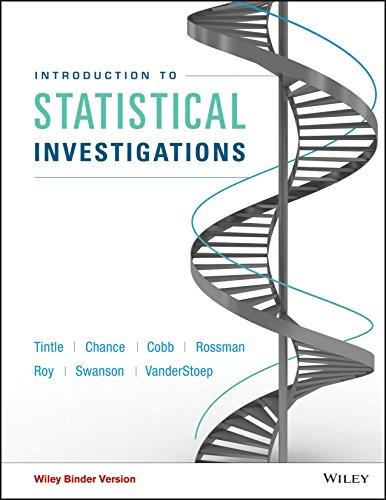Anchoring is the common human tendency to rely too heavily, or anchor, on one trait or piece
Question:
a. Identify the observational units.
b. Identify the explanatory variable and the response variable in this study. Also classify each as categorical or quantitative.
c. Is this an observational study or an experiment? Explain.
d. Were the subjects in this study randomly selected from a population? Explain.
e. Were the subjects in this study randomly assigned to groups? Explain.
The data set is titled Milwaukee. The first column contains the city mentioned to subjects, and the second column contains the guesses for the population of Milwaukee (in thousands, to the nearest thousand).
f. Using an appropriate applet (e.g., the Multiple Means applet) find and record the following summary statistics for the guesses made about Milwaukee€™s population by the city which they were told about:

g. Find and report the difference in the average guess made by those told about Chicago and those told about Green Bay.
h. Give two possible explanations for the observed difference in average guesses for the population of Milwaukee reported in part (g).
Step by Step Answer:

Introduction To Statistical Investigations
ISBN: 9781118172148
1st Edition
Authors: Beth L.Chance, George W.Cobb, Allan J.Rossman Nathan Tintle, Todd Swanson Soma Roy





